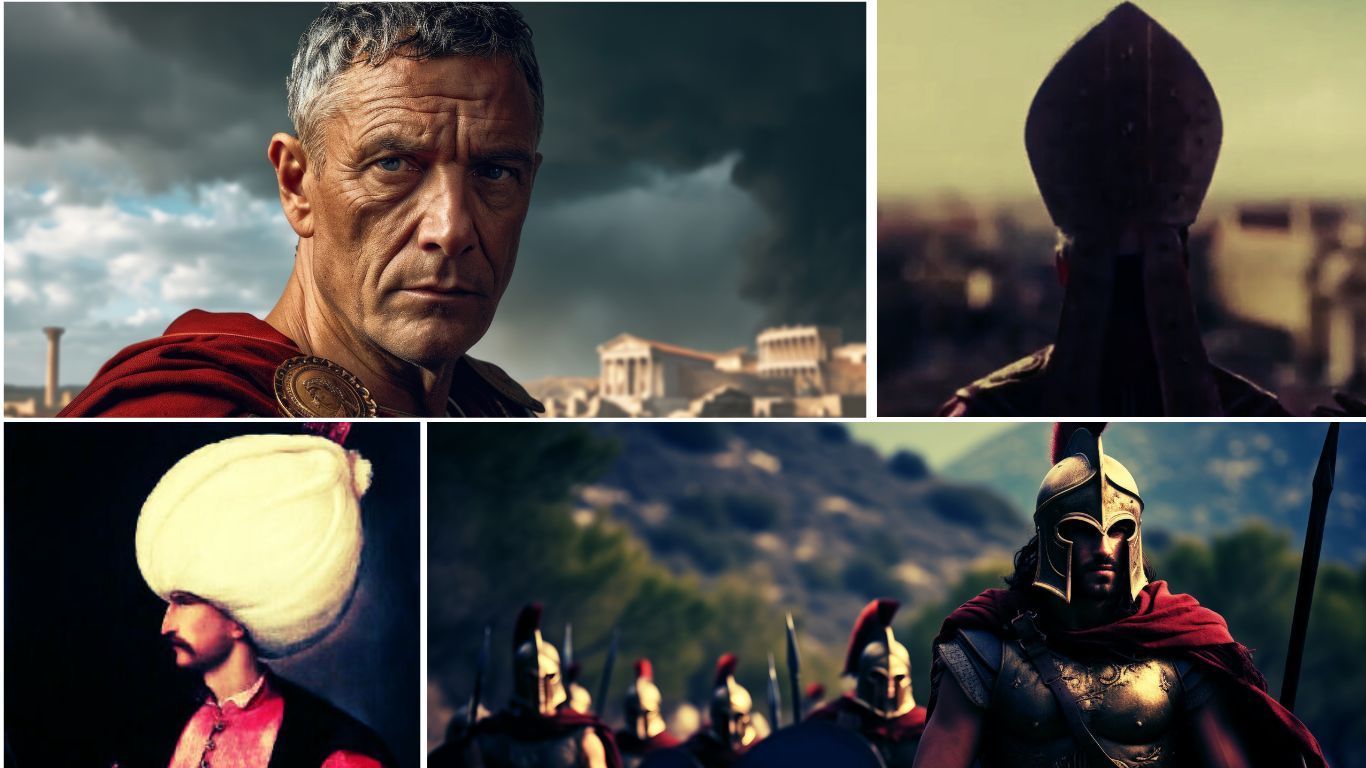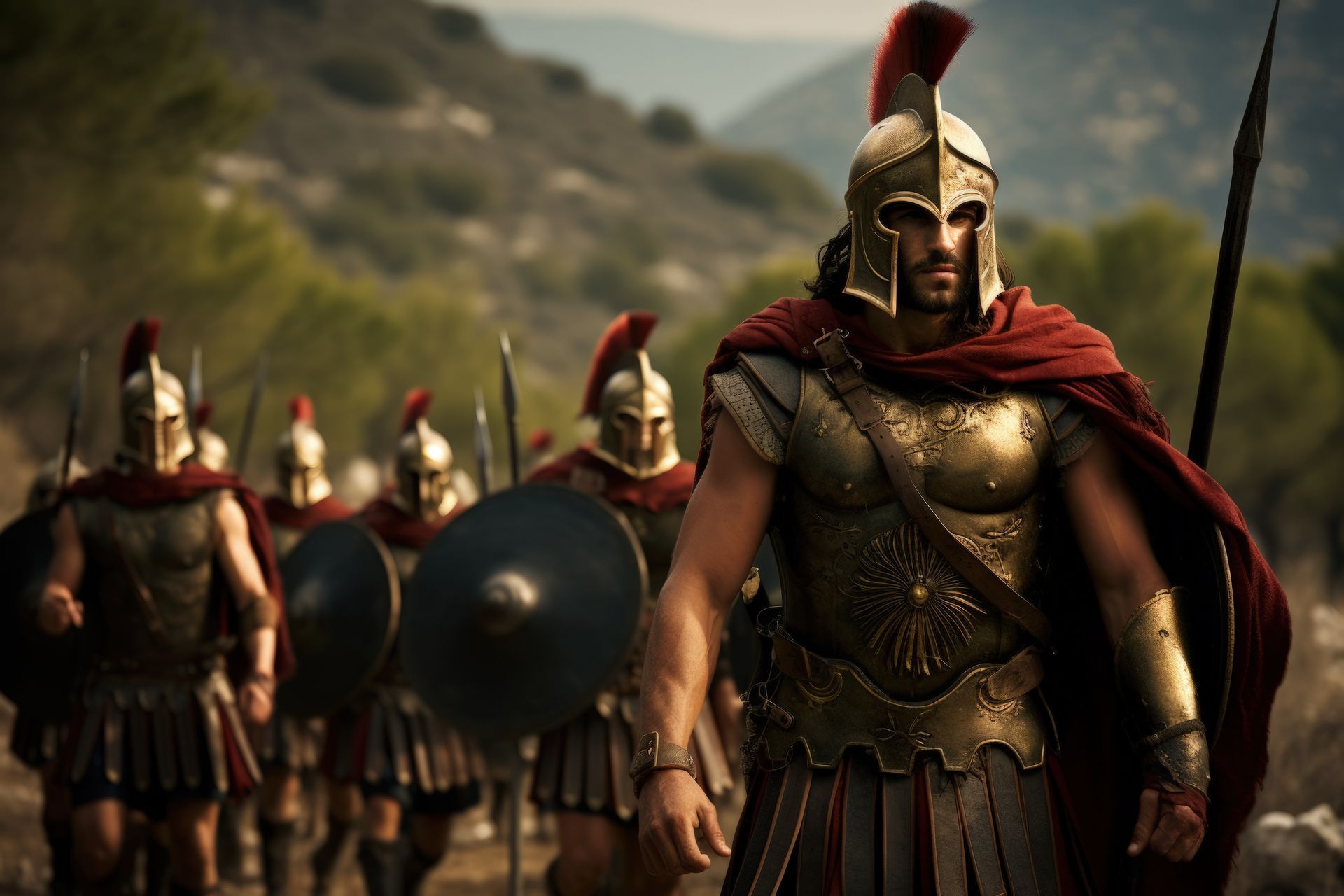The Biblical Prophecy
In Daniel 8:9, we find an intriguing prophecy:
"And out of one of them came forth a little horn, which
waxed exceeding great, toward the south, and toward the east, and toward the pleasant land."
We will look at the Pleasant Land in our next study, therefore, in this study, our focus is on the power that waxed exceeding great toward the south and the east.
Who fulfilled this prophecy?
There are four powers that are often identified as the Little Horn:
- Antiochus Epiphanes
- Imperial Rome
- The Papacy
- Islam
In this article, you will discover which historical power truly fulfills this prophecy.
Setting the Timeline
Before diving into the specifics, we need to establish our historical boundaries:
According to the prophecy, the Little Horn would arise from one of the winds of the divided Greek territories. Because the winds of the divided Greek Empire existed within a specific timeframe, we must see that the Little Horn could not arise before the Greek Empire divided, nor could it arise after the divided kingdom was conquered by Rome. If we believe a king or kingdom represents the Little Horn and this kingdom arose before Greece divided or after it was conquered, then we know that this power is not the Little Horn.
Setting the Timeline
- Starting point: 323 BC (Alexander's death and Greek Empire's division)
- Endpoint: 64 BC (When Rome absorbed the last of the Greek territories)
Now that we have a window of expectancy, we can determine which of the four powers listed above meet this criteria.
According to the historical record, here are the times that each of these powers arose to power:
* Date of ascendency is heavily disputed
Understanding our timeline, we should be able to see that only Antiochus Epiphanes and the Imperial Roman Empire emerged within our window of expectancy. Thus, the Papacy and Islam are here disqualified.
Who Waxed Exceding Great towards the South and the East?
To grasp what "waxing exceedingly great" means, we need to look at the chapter's context. Daniel 8:8 describes Alexander the Great as having "waxed very great." This greatness came through military conquests and empire building. According to the prophecy, The Little Horn waxed
EXCEEDINGLY GREAT. This means the Little Horn would need to exceed even Alexander's achievements.
Did Islam Wax Great?
While the Ottoman Empire did wax exceeding great with its conquests toward the south and east, it emerged as a power far too late to qualify as the Little Horn.
Did the Papacy Wax Exceeding Great?
Although the Papacy was a powerful religious kingdom, it was known more for its persecution of the Saints than a conquering power. Thus, we must remember that the waxing exceeding great is not about persecution but rather kingdom domination; and for this reason, the Papacy fails to meet the criteria in this part of verse 9.
Did Antiochus Epiphanes Wax Exceeding Great?
While Antiochus fits the timeline, his accomplishments fall short of "exceeding greatness." During his campaign, he occupied Egypt for less than a year, kidnapped the king of Armenia, and persecuted the Jews. Justaxposed that against Alexander the Great, it should be understood that Antiochus never waxed exceeding great as the prophecy said the Little Horn would.
Antiochus' Southern Campaign
According to the historical record, Antiochus Epiphanes attacked and
occupied Egypt in 169 BC. However, he failed to conquer Egypt's capital, Alexandria, and less than a year later, the Roman Empire gave him an ultimatum, which forced him to retreat and rendered his southern campaign a failure.
Antiochus' Eastern Campaign
- During the reign of Antiochus Epiphane's father (Antiochus the Great),
Artaxias, a governor within the Seleucid Empire, defected and formed his own nation. This territory would be known as the ancient kingdom of Armenia.
- After Antiochus' affairs in Jerusalem, he briefly captured the Armenian king and forced him to announce his allegiance. Artaxias pledged his allegiance to Antiochus, however, the Armenian king maintained rulership over his kingdom.
- Finally, he attempted to plunder a temple in Persepolis (southwestern Iran) and take its treasures. This historical record says that Antiochus reached the temple there, but was
defeated by the locals.
When we examine the career of Antiochus Epiphanes, we can see that not only was he defeated in almost every conflict he entered, but even when he experienced a little success, he could not maintain that success for any prolonged period of time to be considered great.
Imperial Rome



